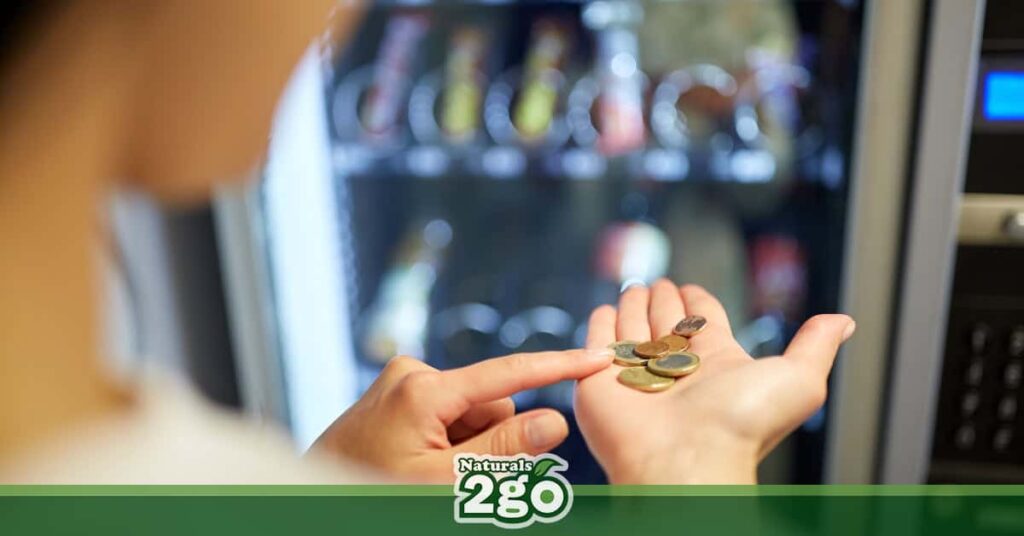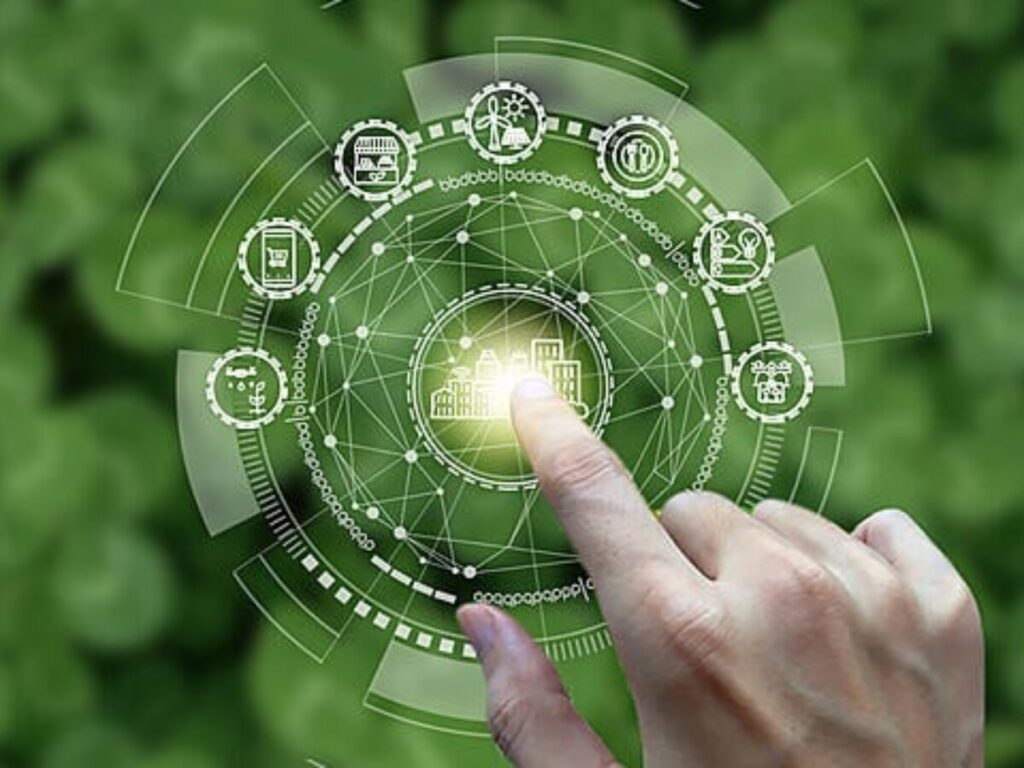Vending machines have been a staple of modern convenience for decades, dispensing snacks, beverages, and even electronics with the push of a button. However, these automated retail solutions have often been associated with wastefulness, inefficiency, and environmental concerns. As the world shifts toward sustainability, emerging technologies such as artificial intelligence (AI), blockchain, and the circular economy are revolutionizing the vending machine industry, making it more efficient, sustainable, and consumer-friendly. This transformation marks an exciting intersection of technology and environmental consciousness, paving the way for a greener future.
The Evolution of Vending Machines
Vending machines have come a long way since their inception in the early 20th century. Originally mechanical and coin-operated, they have evolved into high-tech, IoT-enabled systems that integrate digital payments, inventory tracking, and even personalized recommendations. Despite these advancements, the traditional vending model has remained linear: products are stocked, sold, and discarded, contributing to excessive waste. This is where AI, blockchain, and the circular economy come into play, reshaping vending machines into sustainable retail solutions.
AI: Enhancing Efficiency and Personalization
AI is revolutionizing vending machines in several ways, making them smarter and more sustainable. Here’s how:
1. Predictive Analytics for Inventory Management
AI-powered vending machines can use predictive analytics to track purchasing patterns, adjust inventory based on demand, and reduce waste. For example, sensors and AI algorithms can analyze consumer preferences and real-time sales data to ensure that perishable goods are restocked efficiently, minimizing food waste.
2. Smart Pricing and Dynamic Discounts
Machine learning models can analyze factors such as time of day, weather conditions, and location to adjust pricing dynamically. This helps move products that might otherwise go to waste. For instance, an AI-powered vending machine might lower the price of a salad nearing its expiration date to encourage purchases, reducing spoilage.
3. Personalized Customer Experiences
Facial recognition and AI-driven recommendations allow vending machines to personalize interactions. Customers can receive tailored suggestions based on their previous purchases, dietary preferences, or even mood detection, enhancing engagement while reducing impulse purchases that lead to waste.
Blockchain: Ensuring Transparency and Sustainability
Blockchain technology, often associated with cryptocurrencies, is now playing a crucial role in sustainable vending machine operations. By providing transparent, immutable records, blockchain ensures ethical sourcing, secure transactions, and circular supply chains.

1. Supply Chain Transparency
Blockchain can verify the origin of products stocked in vending machines, ensuring ethical sourcing and sustainability. Customers can scan a QR code on a product and instantly access details about its supply chain journey, including fair-trade certifications, carbon footprint, and production methods.
2. Tokenized Incentives for Recycling
Blockchain enables token-based reward systems that encourage recycling. Smart vending machines can track packaging returned by consumers, issuing digital tokens redeemable for discounts or cryptocurrency. This incentivizes waste reduction and promotes circular economy principles.
3. Secure Digital Payments
Vending machines equipped with blockchain-based payment systems provide enhanced security, reducing fraud and enabling seamless transactions. Cryptocurrencies and decentralized finance (DeFi) solutions can be integrated, expanding payment options for users worldwide.
The Circular Economy: Closing the Loop
A circular economy aims to eliminate waste and continuously use resources by designing products and processes that facilitate reuse, recycling, and regeneration. Sustainable vending machines are now being designed with circular economy principles, integrating closed-loop systems to reduce environmental impact.
1. Reverse Vending Machines (RVMs)
Reverse vending machines accept used bottles, cans, and packaging, rewarding consumers with cashback or discounts. These machines are becoming a critical component of deposit return schemes (DRS), helping divert recyclable materials from landfills.
2. Refillable and Smart Packaging
Some vending machines now dispense products in reusable containers, encouraging customers to return them for refills. Smart packaging equipped with RFID tags can track container lifecycles and ensure proper sanitation, further promoting reuse.
3. Upcycling and Waste-to-Product Initiatives
Innovative vending solutions are exploring ways to upcycle waste into new products. For example, some vending machines accept plastic waste and transform it into 3D-printed objects, providing a tangible incentive for responsible disposal.
Case Studies: Real-World Innovations
Japan’s AI-Driven Smart Vending Machines
Japan is a leader in vending machine innovation. AI-powered machines in Tokyo analyze foot traffic and customer demographics to optimize product selection and reduce waste. Some machines even adjust cooling levels based on real-time weather conditions to conserve energy.
Coca-Cola’s Blockchain-Based Recycling Rewards
Coca-Cola has piloted blockchain-based vending machines that reward customers for returning bottles. These machines track recycling efforts and issue digital tokens, creating a transparent and incentivized circular system.
Loop’s Refillable Product Dispensers
Loop, a circular economy initiative, has introduced vending dispensers for refillable household products like shampoo and detergent. Customers purchase reusable containers, which they return for cleaning and refilling, drastically cutting down plastic waste.
The Road Ahead: Challenges and Opportunities
While AI, blockchain, and circular economy models present exciting possibilities for sustainable vending machines, challenges remain. High initial costs, regulatory hurdles, and the need for consumer awareness are barriers that must be addressed. However, as technology advances and environmental concerns grow, more businesses and governments are investing in sustainable vending solutions.
Policy and Regulation| Sustainable Vending Machines
Governments worldwide are implementing stricter regulations on waste management and single-use plastics. Policies that mandate deposit return schemes and encourage smart recycling infrastructure will further drive the adoption of sustainable vending machines.

Collaboration and Innovation
Tech companies, beverage manufacturers, and sustainability advocates must collaborate to refine these technologies. Open-source AI models, interoperable blockchain networks, and standardized recycling protocols will accelerate the transition toward eco-friendly vending solutions.
Consumer Adoption
Educating consumers about the benefits of AI-powered vending and blockchain-based recycling incentives will be crucial. Gamification strategies, loyalty programs, and sustainability campaigns can increase participation and make eco-conscious choices more appealing.
A Greener Future with Smart Sustainable Vending Machines
The convergence of AI, blockchain, and circular economy principles is reshaping the vending machine industry into a more sustainable and intelligent system. By reducing waste, promoting ethical sourcing, and incentivizing recycling, these technologies are paving the way for a future where convenience and sustainability go hand in hand. As innovations continue to emerge, smart vending machines will play a pivotal role in the global transition toward a greener, more efficient, and circular economy-driven world.
The next time you grab a snack from a vending machine, imagine a future where that simple action contributes to a cleaner planet. With AI optimizing inventory, blockchain ensuring transparency, and circular economy principles reducing waste, the vending machines of tomorrow will be smarter, greener, and more sustainable than ever before.
1 thought on “ultimate the Future of Sustainable Vending Machines AI, Blockchain, and the Circular Economy”